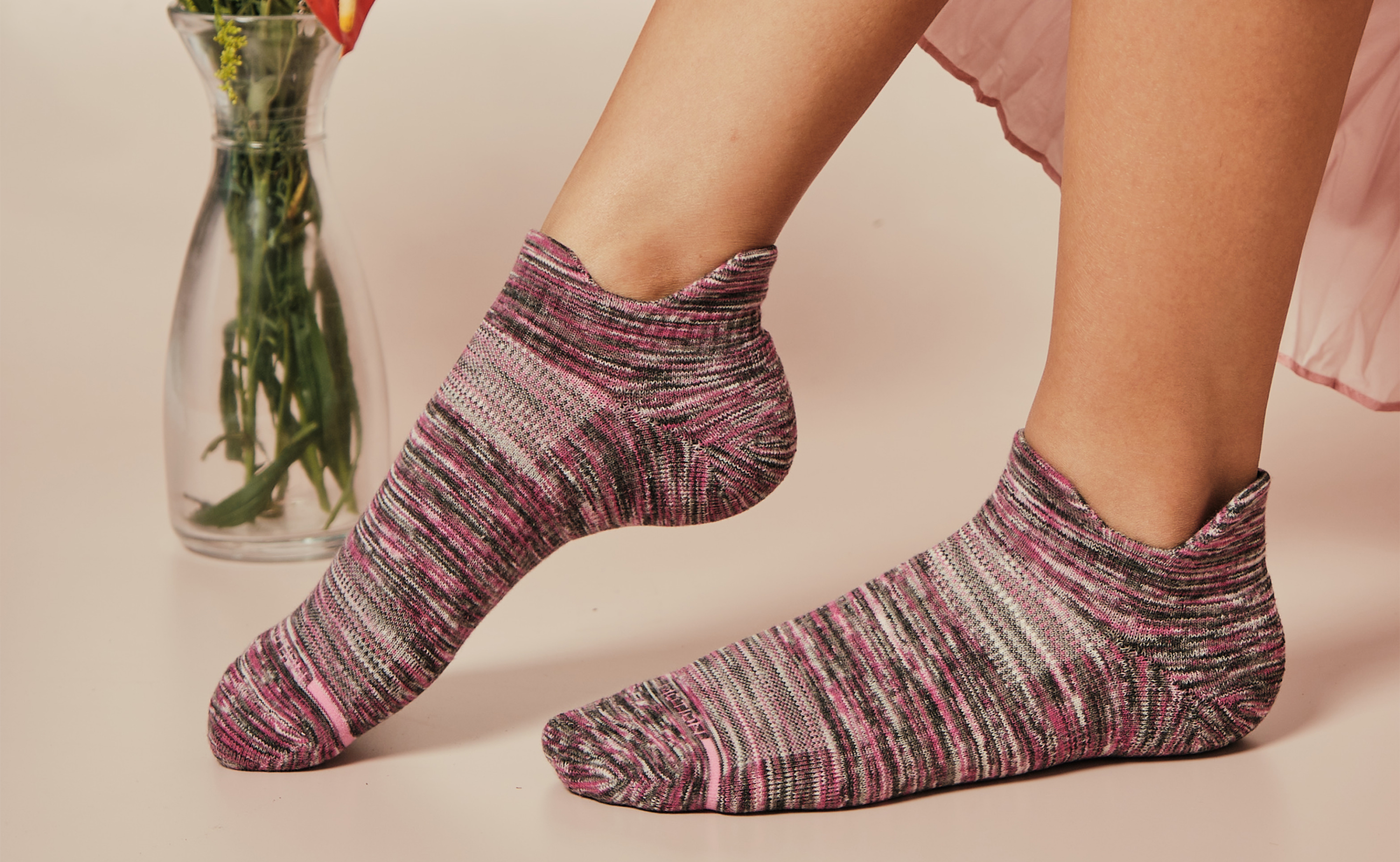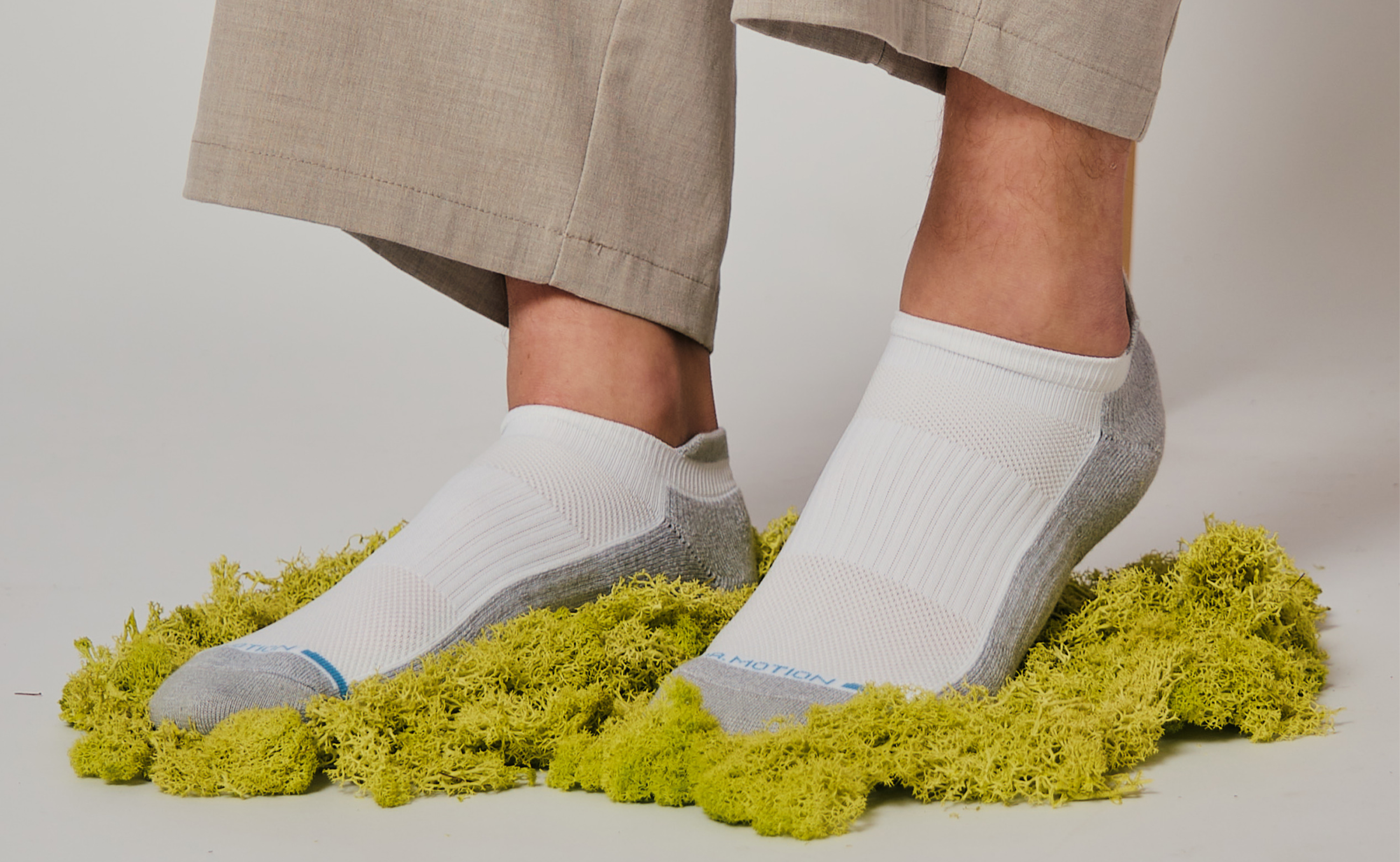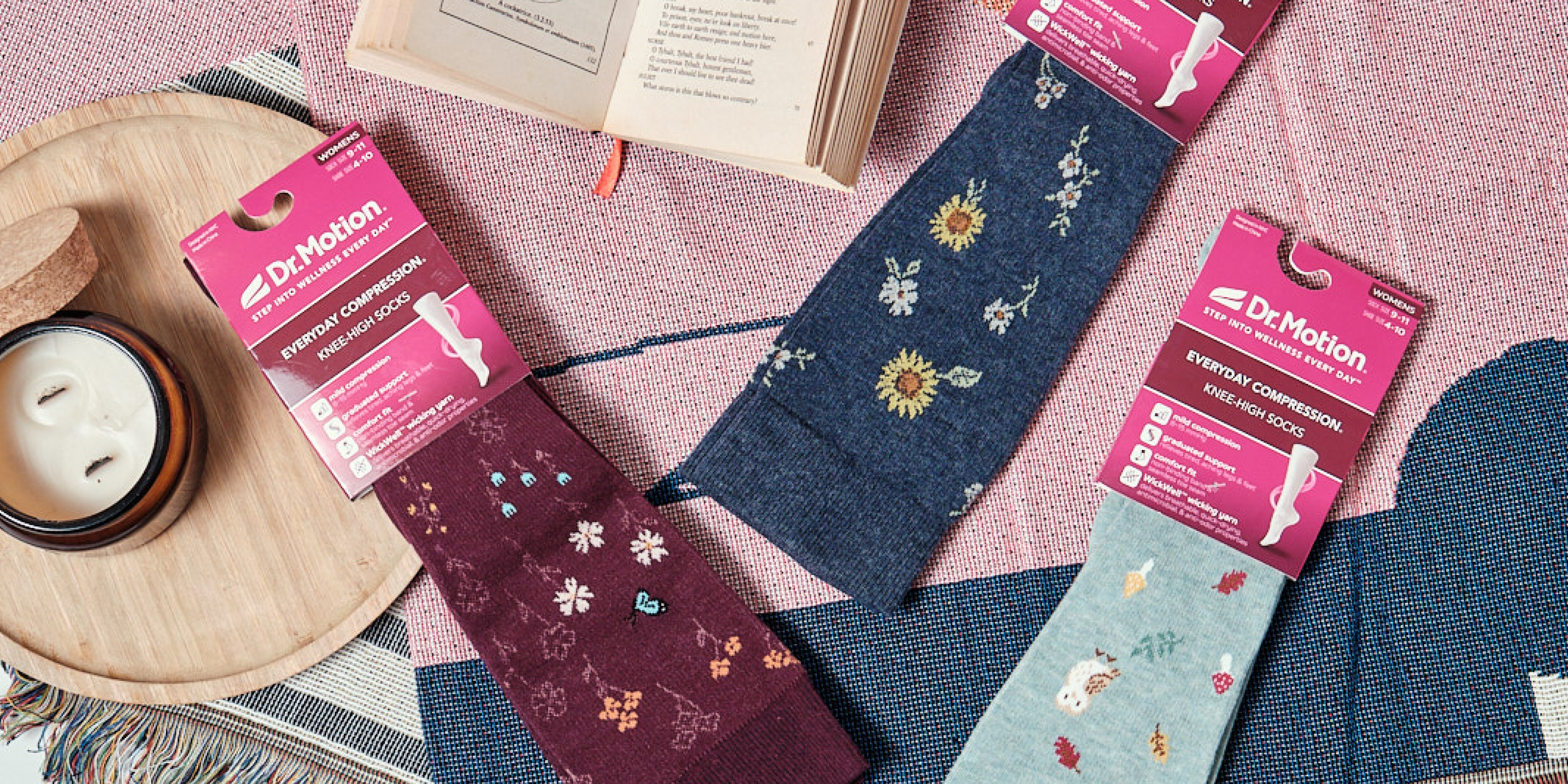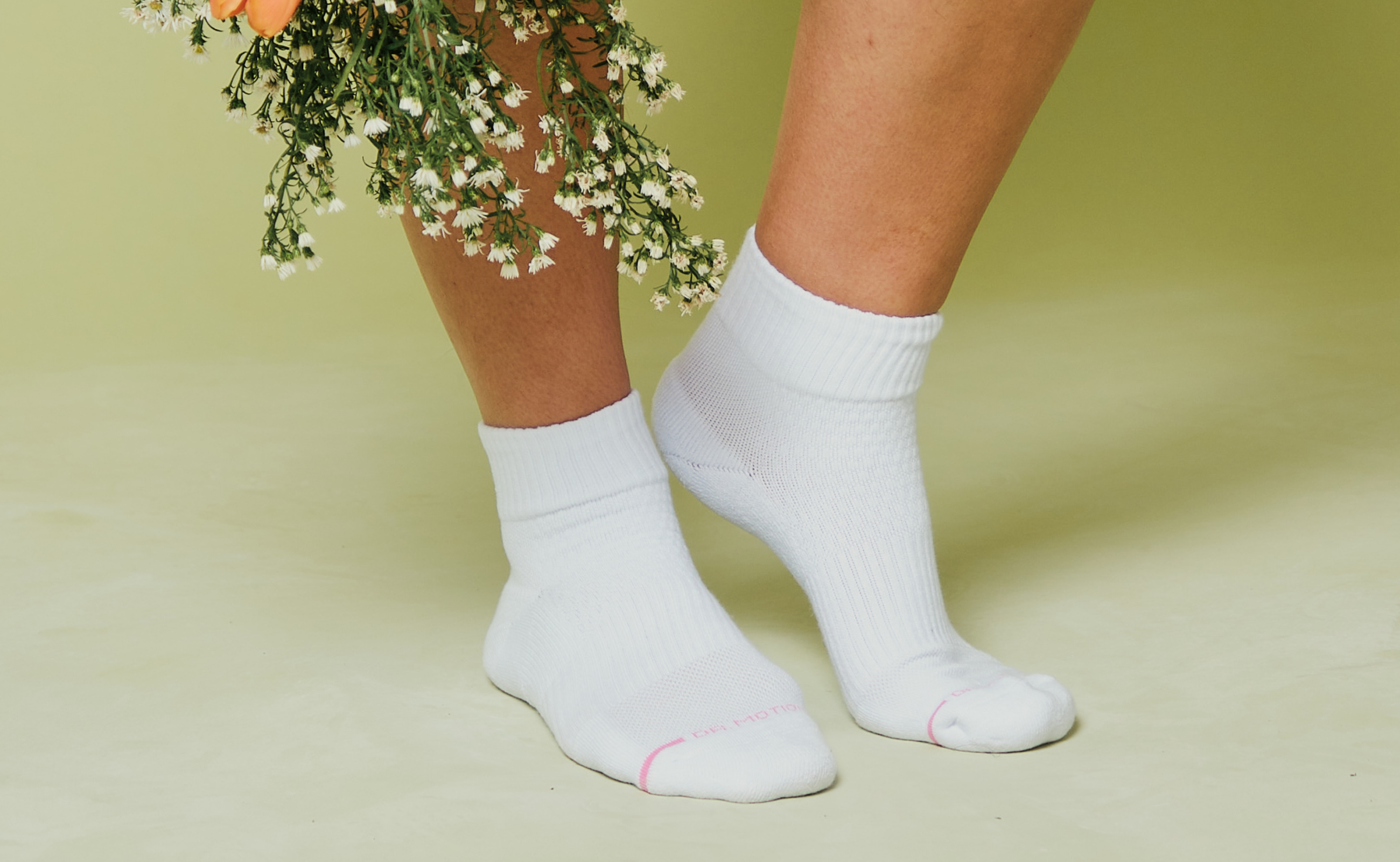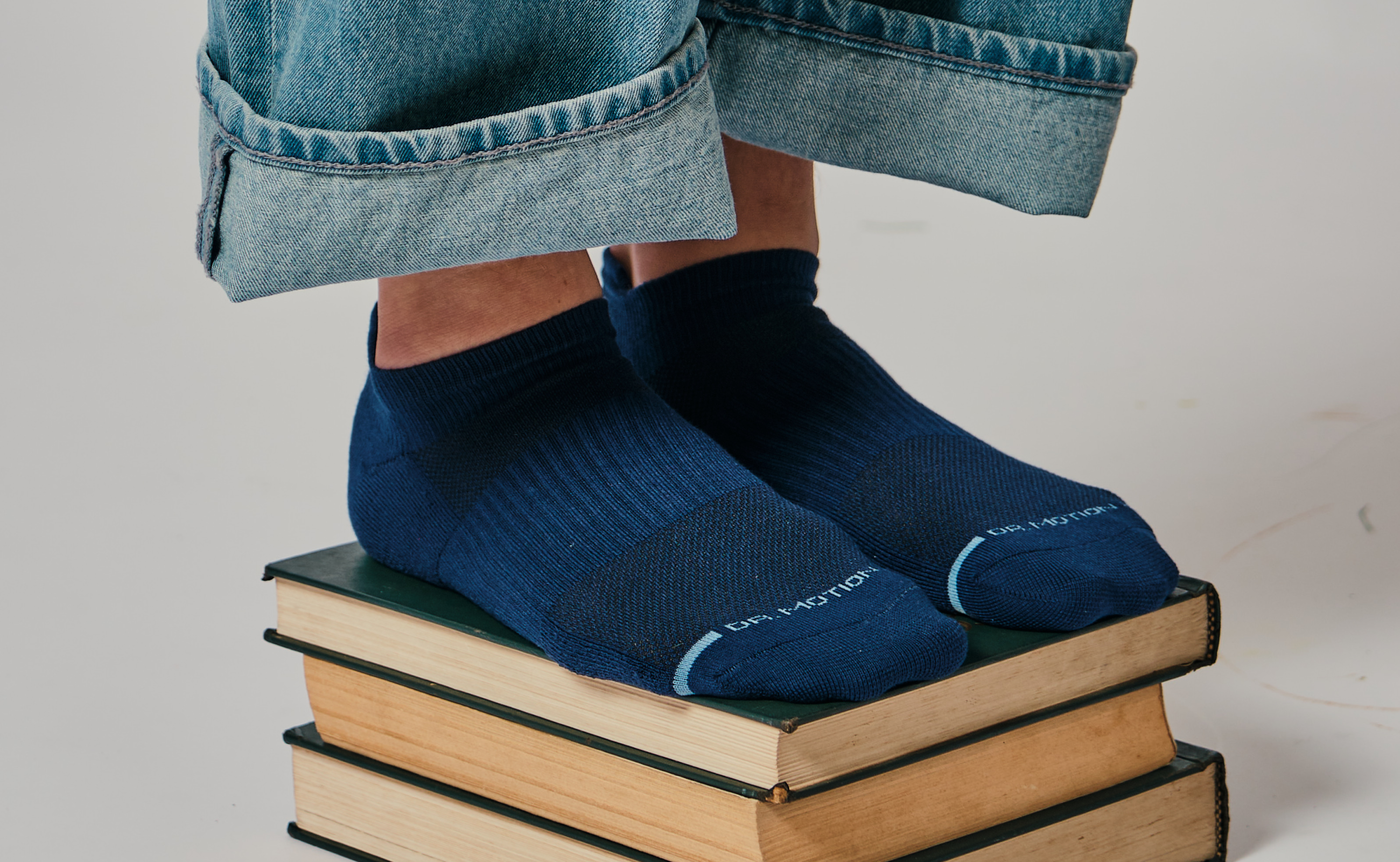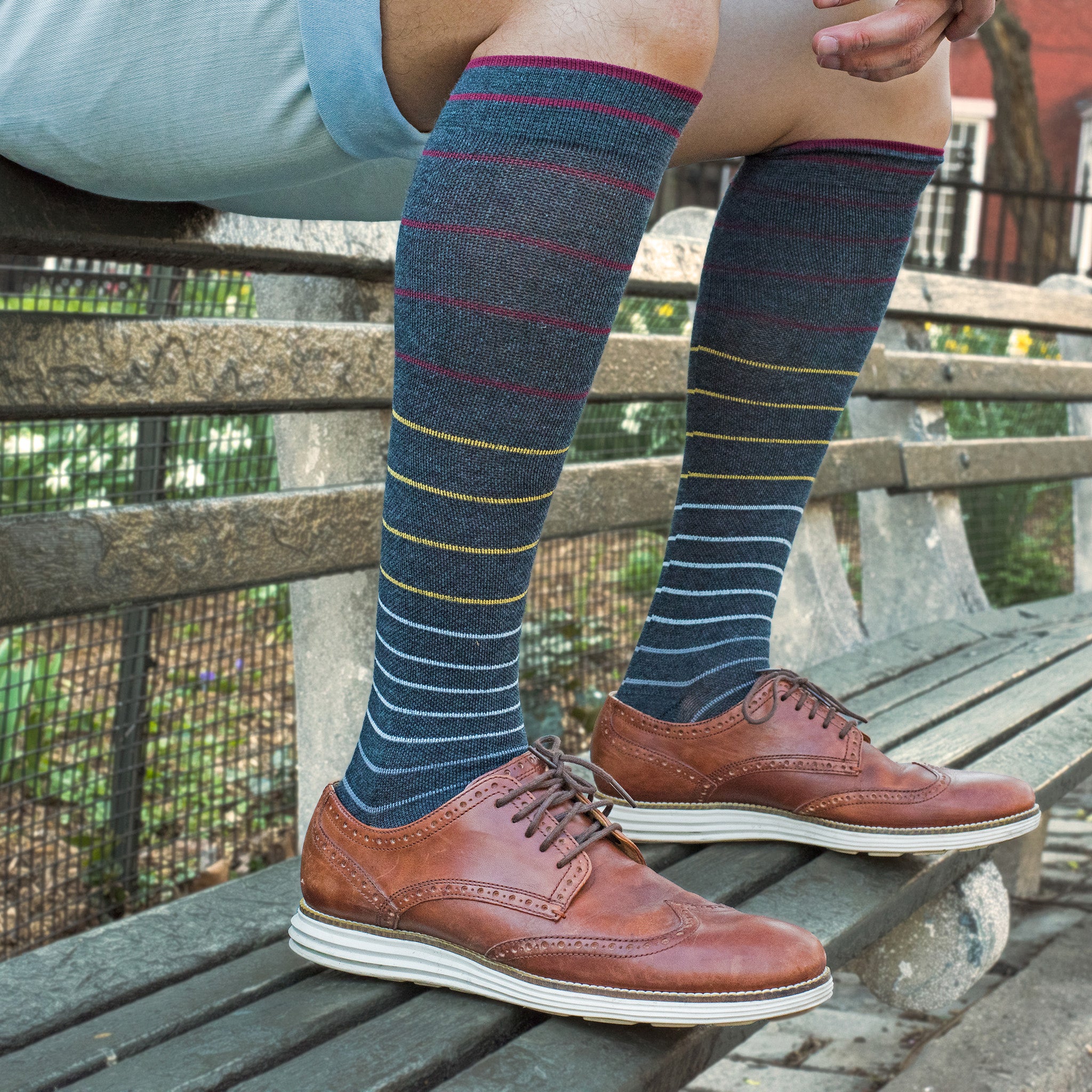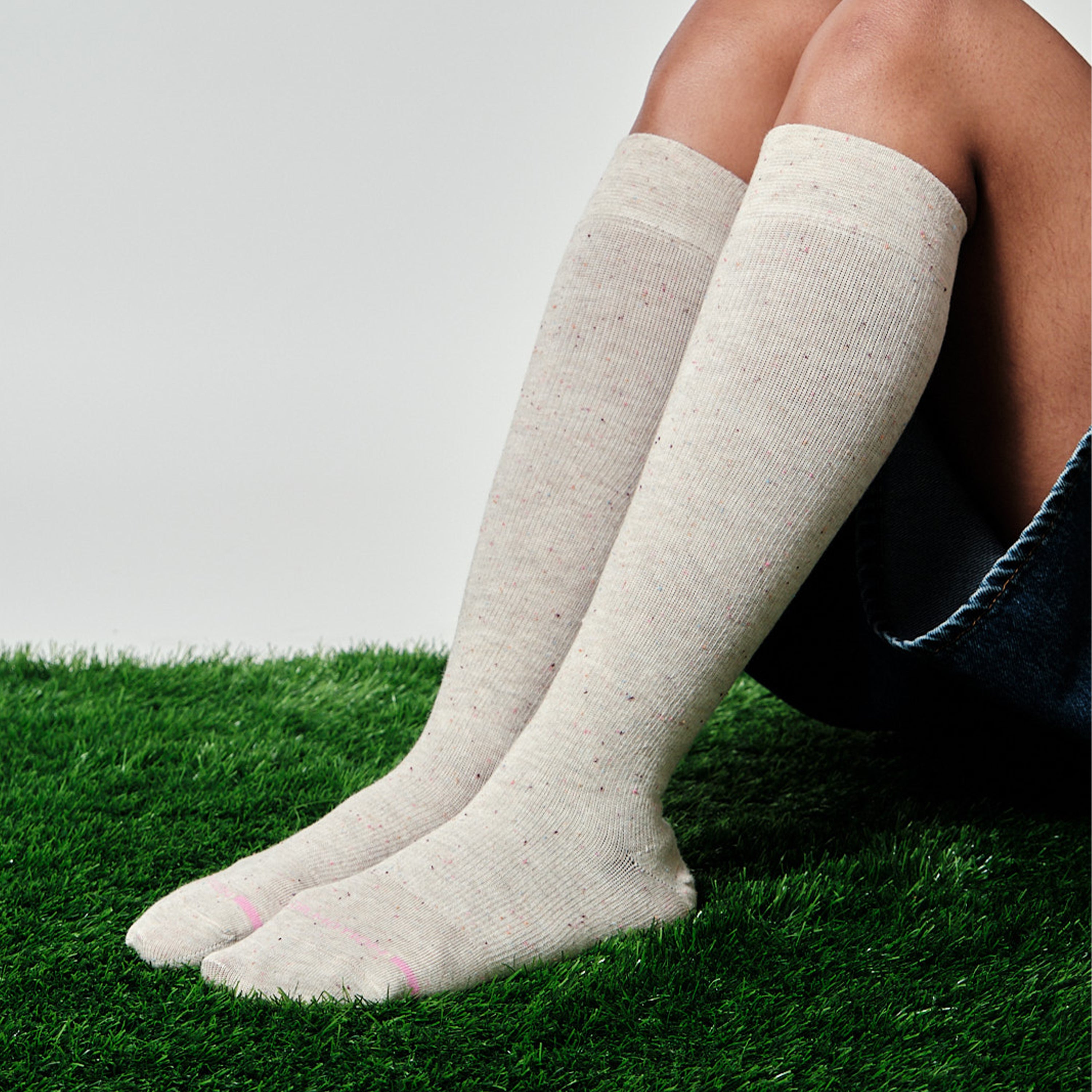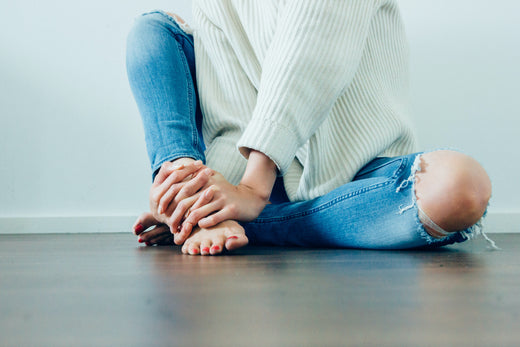Benefits of Knee-High Compression Socks
Compression socks reduce swelling and promote blood flow. This infographic outlines the health and wellness benefits of wearing knee high compression socks.
Did you know that compression socks were invented by a man with varicose veins? That's right. Compression socks owe their origin to Conrad Jobst, a German engineer who lived in Ohio and invented them in the 1950s.
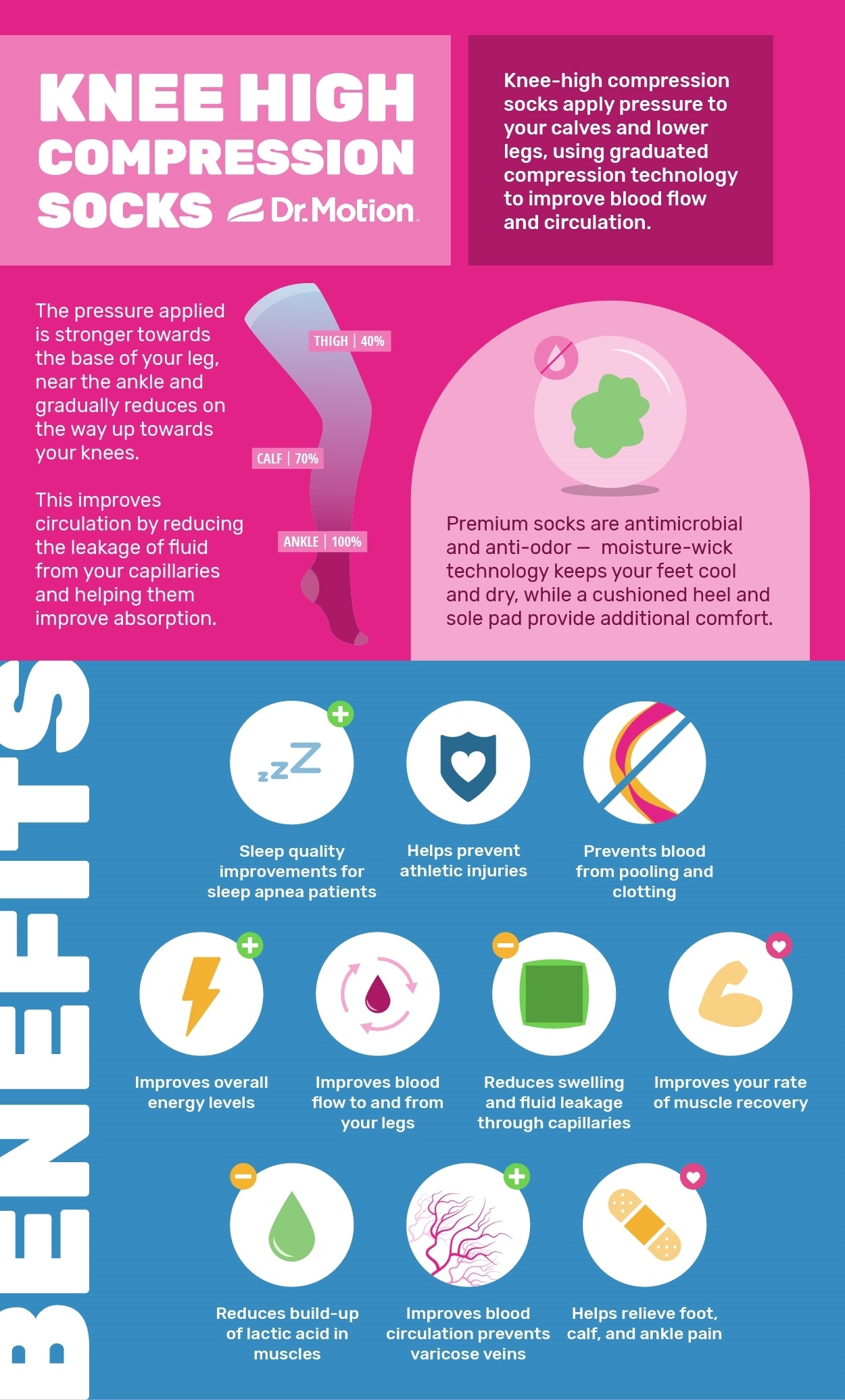
In 2022, compression gear like these socks are widely used to improve athletic performance and treat poor circulation and chronic pain.
Here's why these socks, or more specifically, knee-high compression socks work so well!
The Technology Behind Knee-High Compression Socks
Knee-high compression socks apply pressure to your calves and lower legs. The use of graduated compression technology helps improve blood flow and circulation. So how does this technology work?
The pressure applied is stronger towards the base of your leg, near the ankle and gradually reduces on the way up towards your knees.
This helps improve circulation by reducing the leakage of fluid from your capillaries and helping them improve absorption. Pressure is pre-determined by manufacturers during the design process, where compression levels are measured in millimeters of mercury (mmHg).
8-15mmHg is a lower level of compression, while 40-50mmHg is on the higher end, requiring a doctor's prescription for usage. You'll find that premium socks are antimicrobial and anti-odor. Moisture-wick technology keeps your feet cool and dry, while a cushioned heel and sole pad provide additional comfort.
Talk to your doctor about the right compression strength for your needs.
A Comfortable Solution
Wearing these socks is a comfortable experience that allows for enhanced performance and relief from chronic pain. Here are some more benefits worth noting!
- Improves overall energy levels
- Improves blood flow both, to and from your legs
- Reduced swelling and leakage of fluid through capillaries
- Improves your rate of muscle recovery
- Reduces the build-up of lactic acid in aching muscles
- Helps prevent athletic injuries while allowing for better quality training and performance
- Can help alleviate symptoms of restless leg syndrome
- Small improvements in sleep quality for patients with sleep apnea
- Blood circulation can help prevent the development of varicose veins
- Prevents blood from pooling and clotting
- Helpful in relieving foot pain, calf pain, and ankle-pain
Be sure to purchase premium quality high-knee compression hose or socks to experience maximized benefits.
How to Wear Compression Hose or Socks
Your compression socks are effective at what they do, but you must wear them right to make the most of them.
Make sure to avoid bunching up your socks. Smoothen them out all the way up to your knees and do not fold your socks to avoid concentration of pressure.
Wear them when necessary or as prescribed by your medical professional.
Over time, your socks may lose their elasticity or pressure. Be sure to buy durable socks and re-purchase as and when required to maintain efficiency.
Who Can Wear Them?
If you meet any of the following criteria, you are likely a good candidate for knee-high compression socks.
- You have poor circulation or a condition like an edema
- You have varicose veins
- You stand or sit in places for long durations
- You are an athlete
- You are recovering from surgery or injury
If you are pregnant, please make sure to consult your gynecologist before wearing knee-high compression socks for pregnancy.
Find Compression Socks That Work for You
Compression socks come with a variety of benefits, including improved circulation and quicker muscle recovery.
Think you might be a good candidate for knee-high compression socks? Explore our collection of compression socks for women and men and find socks that are right for you!
Disclaimer: This article provides information solely for educational purposes, including but not limited to text, graphics, images, and other materials contained herein. This article is not intended to substitute for professional medical advice, diagnosis, or treatment. Always seek the advice of your physician or another qualified healthcare provider with any questions you may have regarding a medical condition.


